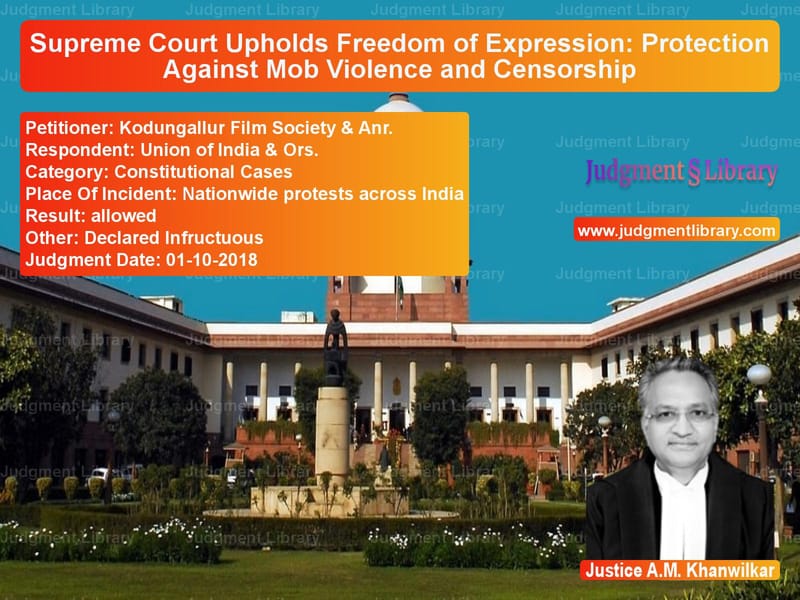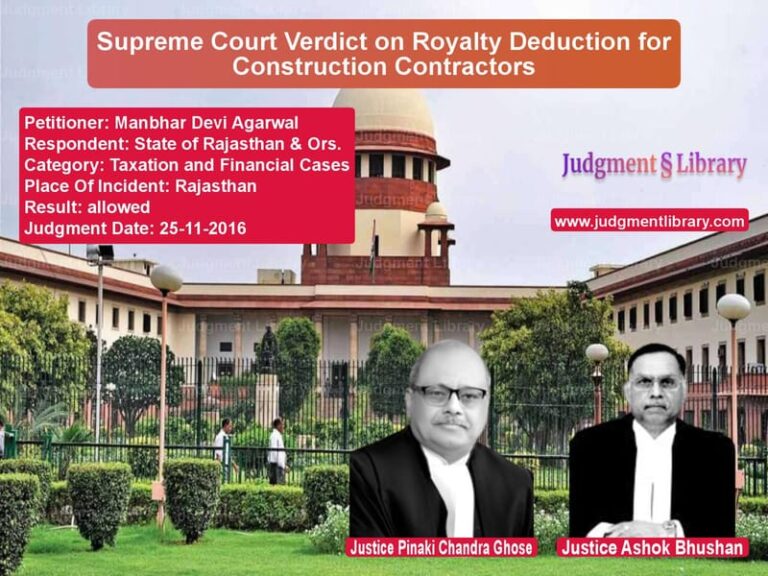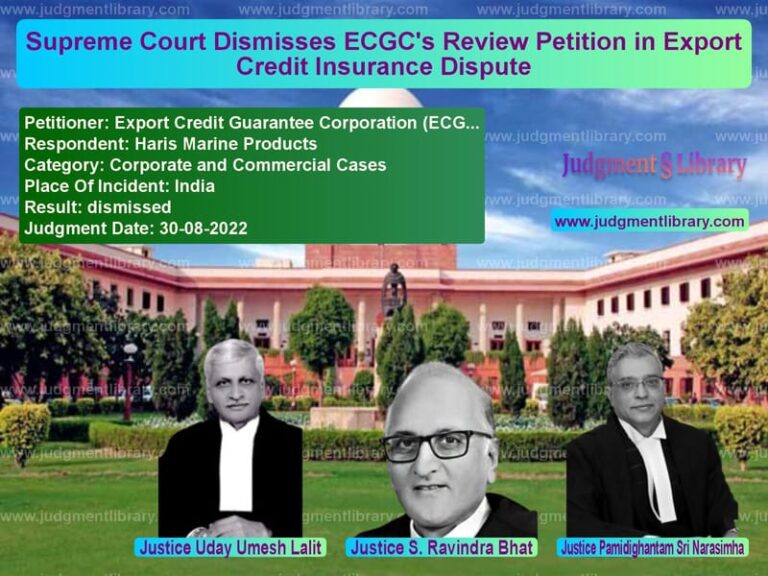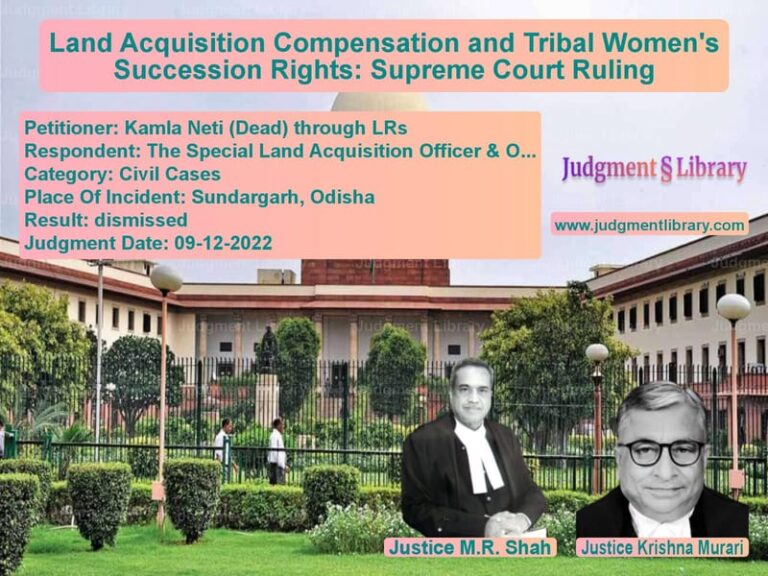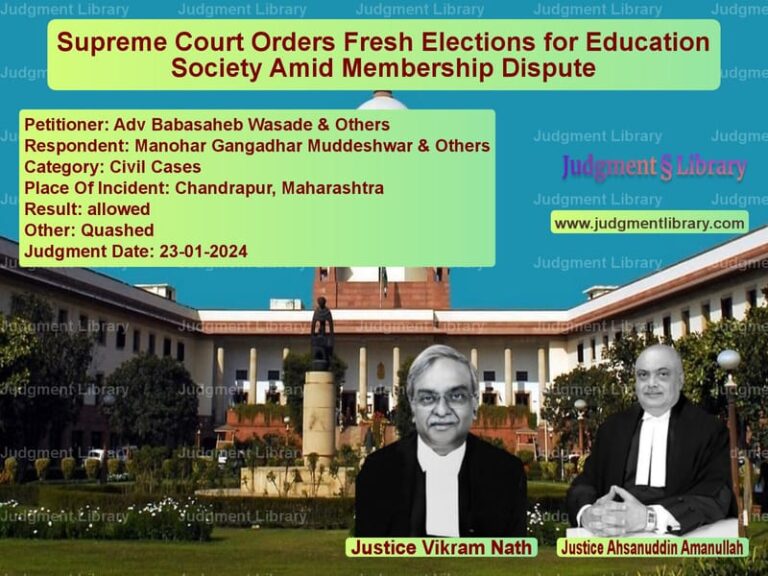Supreme Court Upholds Freedom of Expression: Protection Against Mob Violence and Censorship
The Supreme Court of India, in its landmark judgment in the case of Kodungallur Film Society & Anr. vs. Union of India & Ors., delivered on October 1, 2018, addressed the growing incidents of mob violence against artistic and creative expressions, particularly in the film industry. The case was filed in response to violent protests that erupted across the nation, especially against films such as Padmaavat, where mobs engaged in acts of violence to prevent public screenings, citing offense to their cultural or religious sentiments.
The judgment emphasized the necessity of protecting artistic expression under Article 19(1)(a) of the Constitution and held that the state governments had a duty to prevent such unlawful violence rather than succumb to the threats posed by radical groups. The Supreme Court directed strict implementation of its earlier guidelines on mob violence, imposed liability on those inciting and committing such acts, and suggested measures to prevent further occurrences.
Background of the Case
The petitioners, Kodungallur Film Society and an individual member of the society, approached the Supreme Court seeking protection against violent protests targeting artistic and cultural productions. The petition was filed in the wake of multiple attacks on film screenings by self-proclaimed moral guardians who claimed that the content of such films hurt public sentiments. The petitioners contended that:
- The release of films certified under the Cinematograph Act was being disrupted by mobs acting as unlawful censors.
- State governments were failing to clamp down on violent groups and, in some cases, were banning films citing law and order concerns instead of prosecuting the perpetrators of violence.
- There was political patronage of such violent groups, leading to a breakdown of constitutional protections for artistic expression.
Reliefs Sought by the Petitioners
The petitioners prayed for several directives from the Supreme Court, including:
- Strict implementation of the Court’s guidelines in In Re: Destruction of Public and Private Properties vs. Govt. of A.P. regarding liability for damage during violent protests.
- Appointment of Claims Commissioners to assess and recover damages from the perpetrators and instigators of mob violence.
- Mandatory police action against those inciting and committing acts of violence against films certified for public screening.
- Liability for additional security costs for film exhibition centers on individuals or groups issuing threats against screenings.
- Time-bound investigation and trial of offenses related to mob violence.
- Stringent bail conditions, including financial compensation for damages caused by those seeking release.
Supreme Court’s Analysis and Judgment
The Supreme Court, in its ruling, recognized the pressing need to address rising mob violence and vigilante censorship. It reaffirmed that freedom of speech and expression cannot be curtailed by threats of violence and that the state had a duty to uphold constitutional protections.
Key Observations of the Court
- On the role of the state: The Court held that it is the responsibility of the state governments to prevent mob violence and prosecute offenders. It criticized states that responded to such violence by banning films instead of taking action against the perpetrators.
- On liability for damages: The Court emphasized that those who incite or commit acts of violence should be held financially liable for damages caused to public and private property.
- On the role of law enforcement: The judgment directed police and state authorities to take proactive measures, including video documentation of protests, swift arrests, and preventive detentions.
- On bail conditions: The Court ruled that those arrested for participating in mob violence should only be granted bail upon depositing an amount equivalent to the damage caused.
Final Rulings and Directives
- States must strictly enforce the Supreme Court’s earlier guidelines on preventing damage to public and private property.
- Claims Commissioners should be appointed to assess and recover damages from offenders.
- Special police units must be created to monitor and respond to threats against artistic and creative expression.
- Trial courts must expedite cases related to mob violence to ensure timely justice.
Impact of the Judgment
The ruling sets a significant precedent in protecting freedom of expression against mob violence and vigilantism. It reinforces that:
- Artistic freedom cannot be dictated by threats of violence, and the state must uphold constitutional protections.
- Violence as a form of protest is unlawful, and those involved will be held legally and financially accountable.
- Police and state authorities must take a proactive role in preventing and responding to violent protests.
Conclusion
The Supreme Court’s decision in Kodungallur Film Society vs. Union of India is a landmark ruling reaffirming the fundamental right to freedom of speech and expression. By placing liability on those inciting violence and ensuring state accountability, the judgment aims to create a safer environment for artistic and creative works. It serves as a strong warning to radical groups that unlawful censorship through violence will not be tolerated and that the law will protect the rights of individuals to express themselves freely.
Petitioner Name: Kodungallur Film Society & Anr..Respondent Name: Union of India & Ors..Judgment By: Justice A.M. Khanwilkar.Place Of Incident: Nationwide protests across India.Judgment Date: 01-10-2018.
Don’t miss out on the full details! Download the complete judgment in PDF format below and gain valuable insights instantly!
Download Judgment: Kodungallur Film Soc vs Union of India & Ors Supreme Court of India Judgment Dated 01-10-2018.pdf
Direct Downlaod Judgment: Direct downlaod this Judgment
See all petitions in Fundamental Rights
See all petitions in Public Interest Litigation
See all petitions in Separation of Powers
See all petitions in Judgment by A M Khanwilkar
See all petitions in allowed
See all petitions in Declared Infructuous
See all petitions in supreme court of India judgments October 2018
See all petitions in 2018 judgments
See all posts in Constitutional Cases Category
See all allowed petitions in Constitutional Cases Category
See all Dismissed petitions in Constitutional Cases Category
See all partially allowed petitions in Constitutional Cases Category

